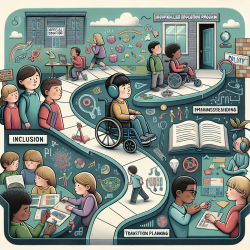The role of social workers in identifying and reporting child maltreatment is both critical and complex. The decision to report suspected abuse or neglect often involves balancing legal obligations with the need to maintain a therapeutic relationship with clients. Recent research by Tufford et al. (2021) provides valuable insights into how practitioners can navigate these challenges effectively. This blog explores key findings from the study and offers practical strategies to enhance decision-making and relationship competence.
The Challenge of Mandatory Reporting
Mandatory reporting laws require social workers to report suspected child abuse or neglect to child protection services (CPS). However, this duty can strain the therapeutic relationship between the practitioner and the client, potentially hindering ongoing psychosocial treatment. The study by Tufford et al. (2021) highlights the tension between fulfilling legal obligations and maintaining trust with clients.
Key Findings from the Research
The study employed an Objective Structured Clinical Evaluation (OSCE) to assess the decision-making processes of social work students and practitioners when faced with scenarios of suspected child maltreatment. Key findings include:
- Diverse Decision-Making: Participants displayed varying approaches to mandatory reporting, influenced by their perceptions of the severity of maltreatment and their previous experiences with CPS.
- Relationship Repair Strategies: Effective relationship repair strategies were identified, such as using empathy, providing information about CPS processes, and offering support to clients.
- Emotional Regulation: Participants who demonstrated better emotional regulation were more confident in discussing mandatory reporting with clients.
Enhancing Practitioner Competence
Based on the research findings, practitioners can adopt several strategies to improve their competence in mandatory reporting while preserving therapeutic relationships:
1. Continuous Training and Education
Ongoing training in mandatory reporting procedures is essential for social workers at all career stages. Training should focus on understanding legislative requirements, recognizing signs of maltreatment, and developing skills for effective communication with clients about reporting obligations.
2. Supervision and Support
Access to regular supervision can help practitioners process their emotions and gain clarity on complex cases. Supervisors can provide guidance on balancing legal duties with therapeutic goals, ensuring that practitioners feel supported in their decision-making processes.
3. Building Trust through Transparency
Practitioners should strive to build trust with clients by being transparent about their legal obligations from the outset. Explaining the limits of confidentiality and the potential need to report can prepare clients for possible outcomes while reinforcing the practitioner's commitment to their well-being.
4. Utilizing Relationship Repair Strategies
The study identified several effective strategies for repairing relationships after a report is made:
- Affect Regulation: Use empathy and validation to acknowledge clients' feelings and reassure them of ongoing support.
- Information Sharing: Provide clear information about CPS processes and what clients can expect following a report.
- Cultural Sensitivity: Recognize cultural factors that may influence clients' perceptions of discipline and maltreatment, adapting communication strategies accordingly.
Encouraging Further Research
The findings from Tufford et al.'s study underscore the importance of continued research into decision-making and relationship repair in social work practice. Practitioners are encouraged to engage with current literature, attend relevant conferences, and participate in professional development opportunities to stay informed about best practices in mandatory reporting.
Conclusion
Navigating the complexities of mandatory reporting requires a delicate balance between legal duties and therapeutic relationships. By implementing evidence-based strategies and fostering a culture of continuous learning, practitioners can enhance their competence in this critical area of social work practice.
To read the original research paper, please follow this link: Decision-Making and Relationship Competence When Reporting Suspected Physical Abuse and Child Neglect: An Objective Structured Clinical Evaluation.










